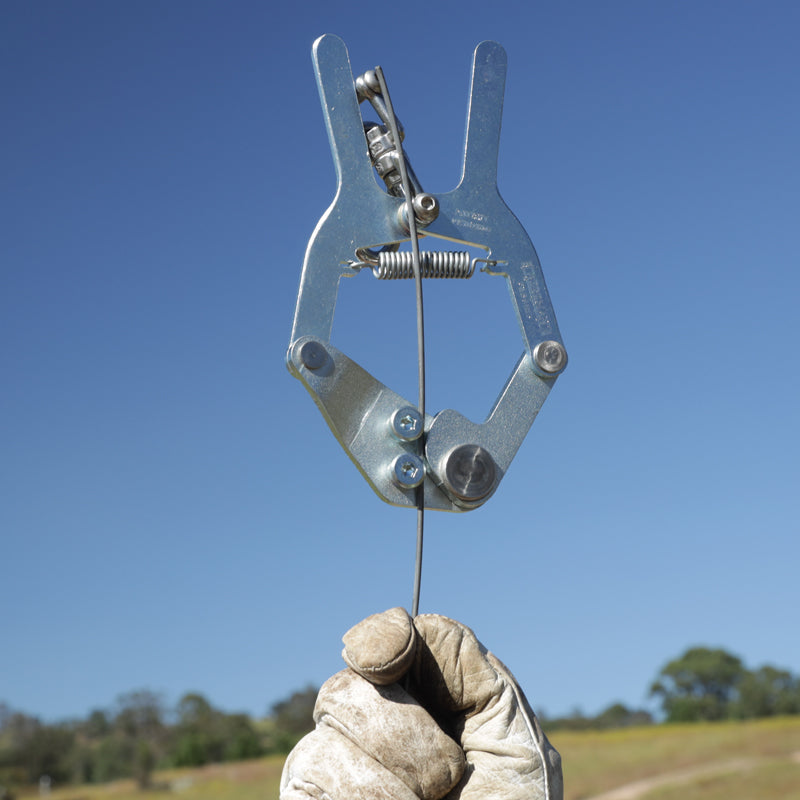
Jack the Gripper
Share
Fences are probably the biggest piece of farming infrastructure there is. If a job that big isn’t done properly it’s probably going to be expensive for the farmer. Either in the cost of repairing the fence or from stock lost.
From our own experience and researching how people work on fences. We realised two things, the first being: That no one seems to like putting up fencing, The second, that many people get serious injuries from wire strainers which let go under strain.
A lot of people are still using the strainers their fathers gave them, but at the time the grippers they’re using were made, low tensile wire was used (High tensile wire has only been available since the 1970s). And the big reason that wire strainers slip is because high tensile wire is harder than the cast metal grip zone of the vast majority of wire grippers. So, a groove forms between the grip zone, and the wire slips.
Standard grippers need to be squeezed onto the wire to make them grip in the first instance, you then have to keep tension on the chain while you put the gripper on the wire coming from the opposite direction. It’s all quite a handful, especially on the bottom wire of a fence where it’s hard to maintain the tension and keep the gripper from hitting the ground and dropping off the wire.
At Wireman we set out to make a wire strainer that was easier and safer to use. A good strainer is a safe one! But apart from the safety issue, Grippers slipping and dropping off the wire is an annoying waste of time.
Wireman grippers are made from High Tensile Steel and use hardened replaceable cap screws as the grip points. Making them harder than the wire, so they don’t slip.
Jack the Gripper is spring loaded, so it snaps on and stays on. The handles make them as easy to use as a pair of pliers, so your fingers are kept well away from the pinch point and there’s no need to hit them to get them off the wire.
You always get a few negative comments from people when you change things (That's life!). Most of the time it’s the “if it ain’t broke, don't fix it” perspective.
However, when we get negative comments, we always ask as many fencing contractors and customers as we can, what they think of the issue, to make sure that what we are doing is useful.
What’s interesting is the different perspectives.
A Digital scale on a wire strainer for instance, can appear on first impression to be a totally frivolous thing. So, we asked fencing contractors what they thought, and one said immediately; “Most people overstrain which shortens the life of the fence (due to contraction of the wire in cold weather) especially on long lengths of wire. I like the scale because I can show the farmer customer that I have strained to the correct tension and there’s no doubt about it”.
The contractor is essentially safeguarding his reputation and avoiding complaints about the work by following the wire manufacturer’s recommendations.
We made the decision to supply lever hoists as the tensioner because you get more tension on the wire with less effort. You can also be more precise with the tension as you can do half a link (unlike a standard chain walking strainer). Lever hoists are also a very versatile tool that can be used for all manner of things on the farm, from pulling calves to lifting engines.
None the less, a lot of people like the old “chain walking come along”. So we decided to sell the grippers individually, to let everyone have the benefit of a Jack the Gripper without needing to buy a hoist.
The ability to have a gripper stay on the wire when needed, yet easily be removed, has meant Strainer Boards became much more efficient when they used grippers. It typically takes about 5 to 10 minutes to get a wedge clamp strainer board on and off the wire mesh.
A Wireman Strainer board can be put on, or removed, in less than 30 seconds.
At Wireman, if we can do something in an easier and safer way, we do it that way.

1 comment
Can I purchase the gripper clamps separate
So I can fit to my existing chain strainers
Thanks